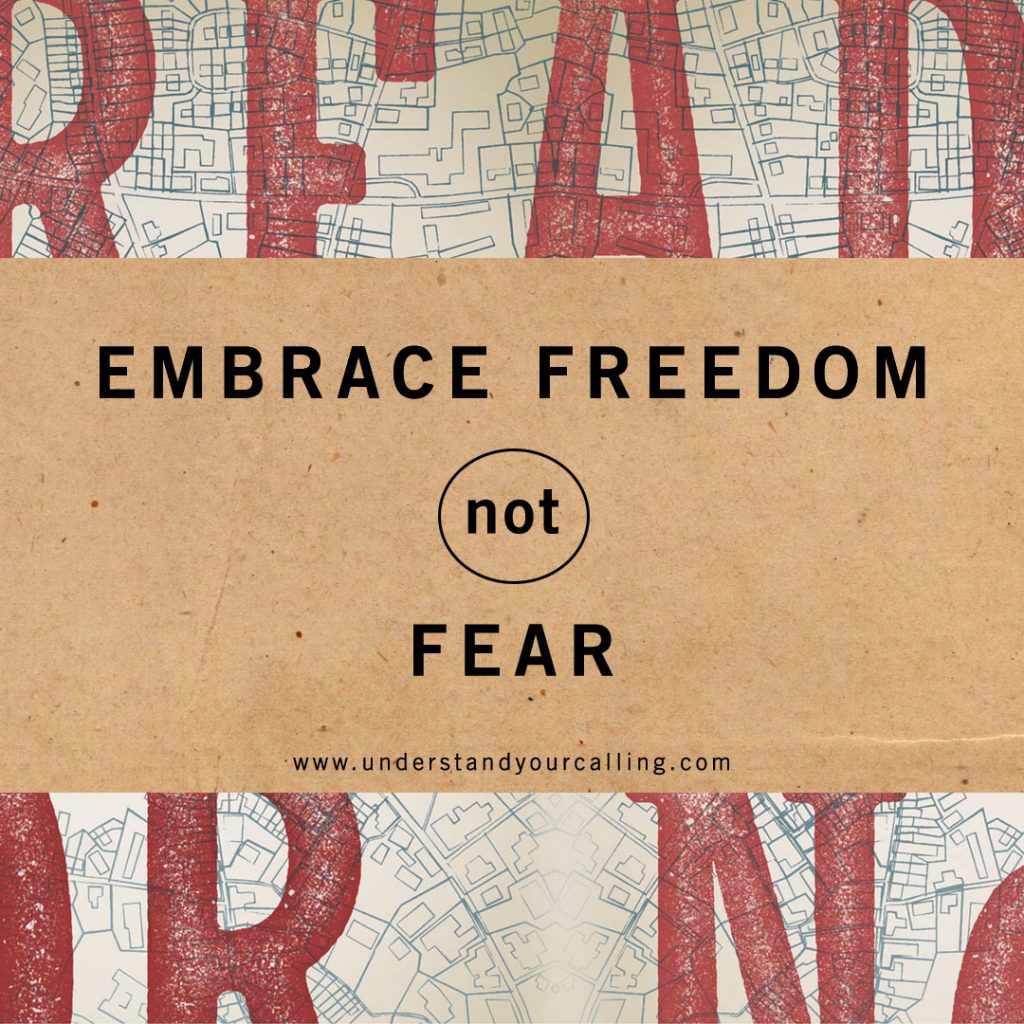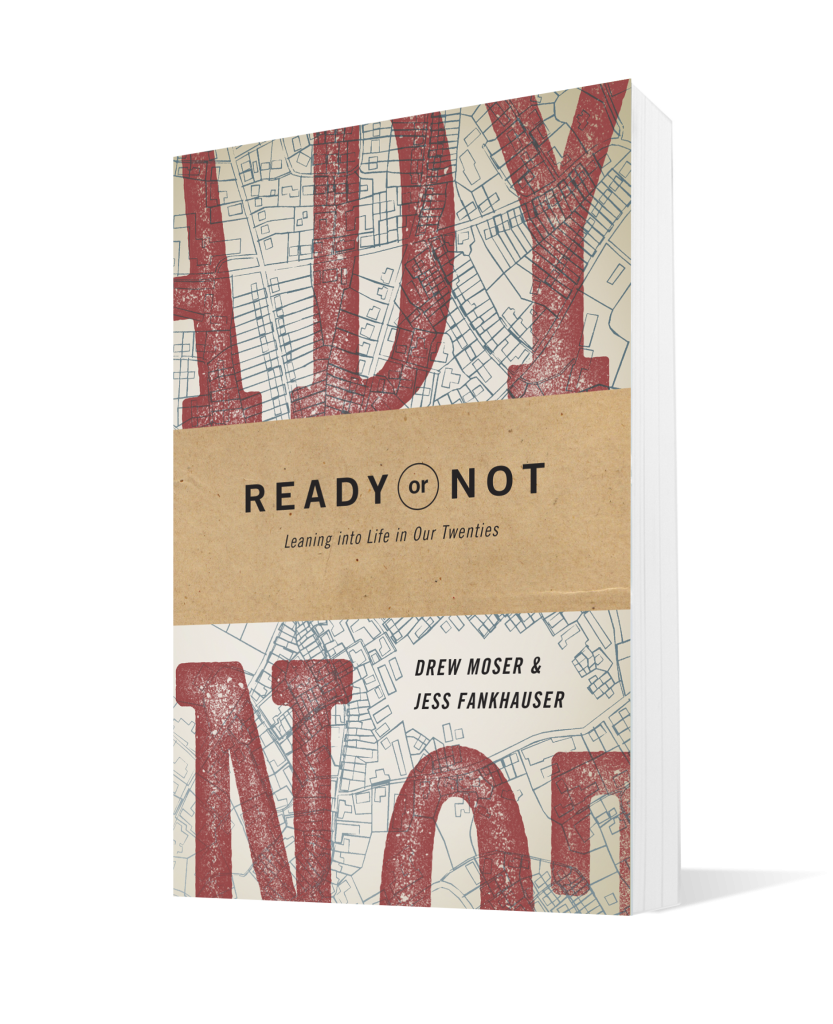In 1988 the world watched as the first Jamaican bobsled team competed in the Winter Olympics. Yes, that Jamaica, the tropical Caribbean island where temperatures never drop below freezing. In 1993, Disney turned the story into a movie, Cool Runnings. (If you haven’t seen this movie, you’re missing one of the great works in American cinema.) It’s a classic inspiring tale of achievement against the odds. At one point in the film, while the team is training for the Olympics, the coach tells them, “If you’re not enough without the gold medal, you’ll never be enough with it.”
Jess and I can’t tell you the number of times we’ve seen the truth of this quote play out in the lives of twentysomethings. This is especially true when it comes to the dimension of work. Something about work makes us believe that our worth and identity are wrapped up in our career striving. We think that if we aren’t especially mindful, successful, or of great worth to our employers, we’ll lose. Work as a gauge of worth is a recipe for disaster. Often the damage is collateral, affecting everyone around us.
In the context of work, the quote from Cool Runnings could just as easily read, “If you aren’t enough without the next ___________ (bonus, promotion, award, raise, acknowledgment, corner office, etc), you’ll never be enough with it.”

In our work with twentysomethings, we’ve seen so much angst, striving, fear, anxiety, and loss among those who place all their hopes and dreams in this dimension of work. Most days we find ourselves counseling twentysomethings who have moved to a new city where they know no one, in pursuit of a dream job that failed to meet their expectations in the first six months. We talk to married twentysomethings who have found that their career passions don’t match the expectations of their spouses that they provide a certain level of financial security. Many moms and dads also feel tension in their relationships. Some want to work outside the home, while their spouses expect them to work inside the home, caring for their kids. Some want to stay home with the kids but have to work outside the home, and some have the option of either working outside the home or staying home with the kids but struggle with what they really want or how to choose.
We listen to college seniors and graduate students who have finally accomplished what they’ve been striving for—graduation and endless possibilities before them—only to find the number of choices so overwhelming, they feel paralyzed and can’t make any decisions at all.
We listen to freshmen who fear that if they choose the wrong major, they’ll somehow ruin their entire lives and miss any calling(s) God might have for them.
We hear all of these disappointments, anxieties, and fears and are reminded of a chorus by Edward Mote:
On Christ, the solid Rock, I stand; All other ground is sinking sand.
Have you ever been to the ocean while the tide is changing? If you stand at the water’s edge, the undertow can cause you to lose your balance and sweep you into deeper water. As long as the water near shore is shallow, losing your balance may be embarrassing, but it isn’t especially dangerous. Yet it’s amazing how quickly the lack of a firm foundation can throw you off balance.
The same is true in life. Scripture talks about the difference between the wise man who built his house on the rock, and the foolish man who built his house on the sand (see Matthew 7). One house was firm and solid, designed to withstand the storms and weather. The other was constantly shifting, like the sand at the ocean.
In many ways, the realities of the global economy today have resulted in a constantly changing workforce. In recent years, statistics have repeatedly indicated that twentysomethings will change careers between three and eight times during their working lives. Add a few job changes into the mix, and that’s a lot of shifting. Building your worth, identity, or all of your hopes and dreams on a foundation that is going to shift that many times in this season of your life is sure to fail. It’s not a solid foundation upon which to build anything!
Now I know that some of you are thinking, That’s great, but I won’t be one of those statistics. I’m going to stay in the same career, industry, or job my whole life. You may be right. But there is no way you can know for sure. To build your identity on a seemingly sure foundation is dangerous. But to build your identity on the rock-solid foundation of Christ and then approach work—whether for two or twenty years—with that foundation at the center of your life can fundamentally transform your experience with work for the better.
Dorothy Sayers wrote one of our favorite essays on prayer titled “Why Work?” We read this essay at least once a year and mention it to our students at least a dozen additional times. In it Sayers explored the meaning and purpose of work and encouraged readers to ask a different set of questions about this dimension of life:
We should ask of an enterprise, not “will it pay?” but “is it good?”; of a man, not “what does he make?” but “what is his work worth?”; of goods, not “can we induce people to buy them?” but “are they useful things well made?”; of employment, not “how much a week?” but “will it exercise my faculties to the utmost?”
Sayers went on to say that our goal should be to work as well as we can. In other words, strive to do really good work. In serving the work, we’re serving God. The words service and community are used frequently in many Christian contexts, which implies an expectation of serving our communities. Sayers noted, “There is, in fact, a paradox about working to serve the community, and it is this: that to aim directly at serving the community is to falsify the work; the only way to serve the community is to forget the community and serve the work.”
How often do you find yourself serving people instead of the work? Is your highest aim to please people and hear them say, “Well done!”? Or is your highest aim to seek Christ and love your neighbors with no strings attached? When we seek to love God first and love our neighbors second, we start to serve the work that best serves God and our neighbors as we use the gifts and talents God has given us. Throughout the hours, days, weeks, and months of our work, it’s important to ask, “How can I serve the work before me in a way that demonstrates love for both God and my neighbor?”
You’ve been reading with Dr. Drew Moser from Ready Or Not: Leaning into Life in Our Twenties. Read the first chapter here. Dive deeper on your calling and vocation on Drew’s website- understandyourcalling.com.


